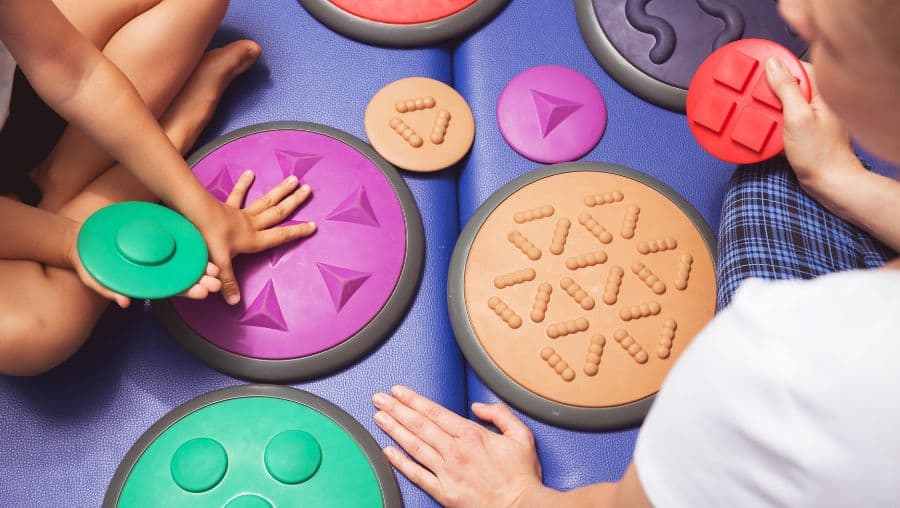3 Benefits of Sensory Playtime to Build Social and Emotional Skills
Sensory playtime is a powerful tool in supporting children’s overall development. For students at The Deron School, sensory play serves as more than just a fun activity, it’s an integral part of building social and emotional skills. These skills are essential for forming healthy relationships, managing emotions, and engaging with the world around them.
What is Sensory Playtime?
Sensory playtime involves activities that stimulate a child’s senses, touch, sight, smell, taste, and hearing. These activities can include anything from playing with textured materials like sand or clay to exploring different sounds and smells. Sensory play is particularly beneficial for children with developmental disabilities, as it encourages engagement, enhances focus, and provides opportunities for social interaction.
1. Fostering Social Skills Through Sensory Play
Social skills are essential for interacting with others and forming positive relationships. Sensory play provides children with the chance to practice these skills in a low-pressure environment. For instance, group activities like building with blocks or playing in a sandbox promote sharing, taking turns, and working as a team. Children learn how to communicate their needs, ask for help, and collaborate with others in a supportive, guided space.
By engaging in group sensory play activities, children can learn the value of cooperation, empathy, and listening to others, skills that are vital for successful social interactions both at school and in life.
2. Developing Emotional Skills with Sensory Playtime
Emotional skills are just as important as social skills in a child’s development. Sensory playtime helps children recognize and regulate their emotions. For example, engaging with calming sensory materials such as smooth fabrics or water beads can provide a soothing effect that helps children manage anxiety and frustration.
Additionally, sensory play helps children express their emotions in healthy ways. As they engage in these activities, they are often faced with moments of challenge, such as working through frustration when a task doesn’t go as planned. These moments offer valuable lessons in patience, problem-solving, and emotional regulation.
3. Improved Self-Awareness and Confidence
When children engage in sensory play, they begin to better understand their own feelings, preferences, and boundaries. This self-awareness contributes to the development of emotional intelligence, which is crucial for building resilience, adapting to challenges, and developing self-confidence.
Through consistent sensory activities, children at The Deron School learn how to recognize their emotions, express themselves appropriately, and develop the confidence to handle a variety of social situations with greater ease.
Choose The Deron School for Your Child’s Social and Emotional Growth
At The Deron School, we recognize the importance of sensory playtime in nurturing social and emotional development. Our structured yet flexible environment allows children to thrive through hands-on learning experiences that engage all their senses. If you’re looking for a school where your child can grow emotionally and socially, choose The Deron School. With our dedicated staff and personalized approach, we support every child’s unique journey toward emotional well-being and social success.
Contact us today to learn how The Deron School can help your child develop essential social and emotional skills through sensory play!
